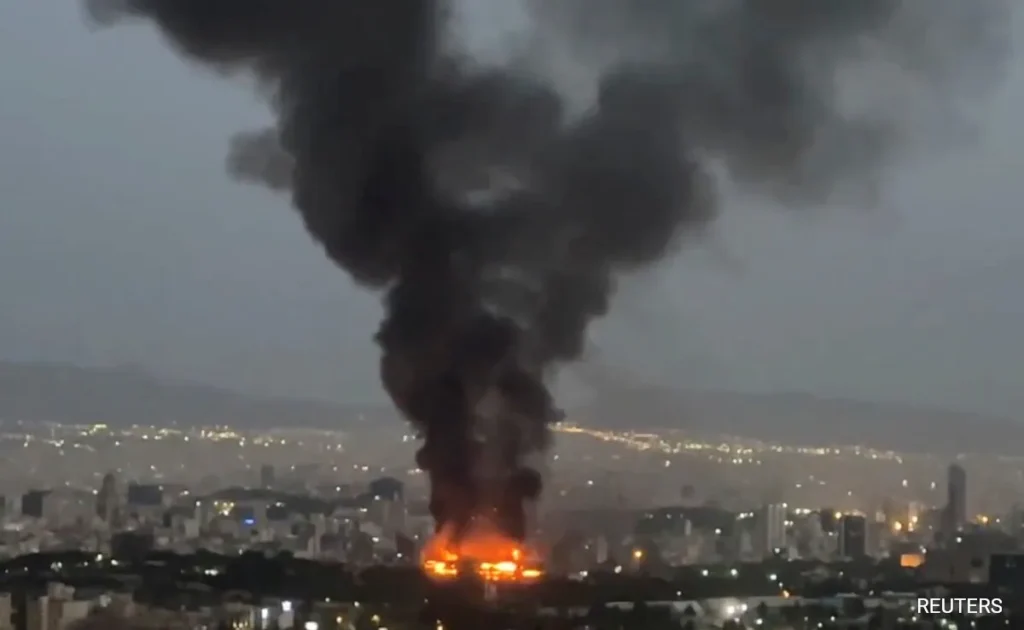A blast has been reported in an industrial area in the Iranian province of Isfahan shortly after former U.S. President Donald Trump released a public statement telling the Israeli body to “not bomb Iranian targets.” Since the public statement and explosion occurred almost simultaneously, the timing of the blast is a source of international nervousness and has heightened already fraught tensions between Iran and Israel, as well as the larger international community.
Approximately 9 PM local time outside Isfahan, an explosion occurred. Local emergency responders were on site immediately, and there are reports of injuries but no deaths. Iranian officials did not directly accuse anyone outside Iran, but state-affiliated media indicated “a foreign attack.” Iranian officials have accused America and Israel in recent months of blocking the Iranian Regime’s access to weapons technology.
Just moments ago, Donald Trump, at a Florida campaign event, cautioned Israel not to take military action to the next level in the region. “I think and hope that Israel will show restraint. If they keep dropping bombs, it will just make the fire burn brighter. We don’t need another war,” he said.
Context
For many years, Iran and Israel have had many shadow wars through cyberattacks, proxies, and covert actions. The Iranian nuclear program has served as the focus. Israel previously attacked Iranian-associated targets inside Syria and has been accused of sabotage actions inside Iran.
Based on multiple satellite images, the Iranian site is affected by fire damage. It remains to be seen if the blast was due to an outside strike, domestic sabotage, or a technological accident. The Iranian defense ministry has issued no technical details and has not included foreign observers.
Although the closeness in time of Trump’s statement and the explosion is interesting, correlation is not causation. There is never any evidence to link the two events at this time. The explosion may have been pre-planned, a mere coincidence, or part of a larger covert operation that was planned weeks, if not months, ago.
Meanwhile, Israeli officials can take Trump’s words as out of sync with their military goals, particularly since Israeli Prime Minister Benjamin Netanyahu has moved away from the United States’ diplomatic effort in relaunching any nuclear deal.
Stakeholders’ Point of View
- Government of Iran: Labels the explosion an “act of sabotage” and promises retaliation if evidence indicates foreign involvement. The Iranian Revolutionary Guard Corps (IRGC) has launched an internal investigation.
- Israeli Authorities: Have not commented. However, anonymous military officials spoke to The Jerusalem Post, stating, “Israel has the right to always defend itself from existential threats.”
- U.S. State Department: Issued a neutral statement encouraging “all parties to refrain from escalation and promote regional stability.”
- Global Reaction: China and Russia condemned covert aggression, while EU leaders were urging transparency and an independent investigation.
Imlications
- Regional Turmoil: If Israel is confirmed to be responsible for the explosion, Iran could retaliate and potentially target either Israeli or U.S. interests in the region, which would cause greater upheaval in the Middle East.
- Diplomatic Consequences: The timing could affect ongoing nuclear negotiations. Iran may walk away from supplements or seek to increase uranium enrichment, as a form of protest or deterrent.
- U.S. Domestic Politics: Trump’s uncharacteristic appeal for restraint can change public opinion about his foreign policy legacy, and could influence the 2024 election debate over U.S. involvement in the Middle Eastern wars.
- Energy Markets: Any proven escalation would increase oil prices and have implications for global energy supply chains, especially if the Iranian oil export routes are disrupted.
Incidents like that of Iranian General Qassem Soleimani’s killing in 2020 or the 2022 explosion at the Natanz nuclear facility have very predictable patterns related to covert military activity and geopolitical unrest. Typically, these incidents involve the escalation of intensity for a brief period before subsiding to proxy engagements or cyber warfare. This current event also has a dangerously familiar trajectory, where we have seen episodes of escalation recede into limited proxy skirmishing.
The explosion in Iran following remarks made by Donald Trump seems more than coincidental; yet, no evidence connects the two actions directly. The geopolitical landscape is dynamic, and even small statements or actions present outsized risks. While the facts are still developing, it demonstrates that peace in the Middle East is quite tenuous and both current and former rulers have a significant role in influencing global security dynamics. Everyone needs to be on their toes to avoid letting their actions lead to open conflict.
Keep reading questeuro

More Stories
European Nations Urge Restraint Amid Escalating Middle East Conflict
Legislation in the Brushing to Develop Digital Safety Net to Protect the Generation Screen from Harm
Secret Medieval Tunnel Unearthed Beneath Swiss Alps Church